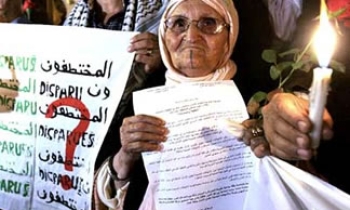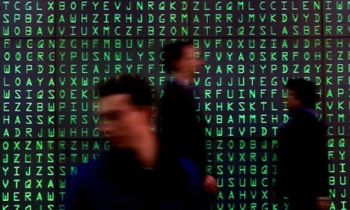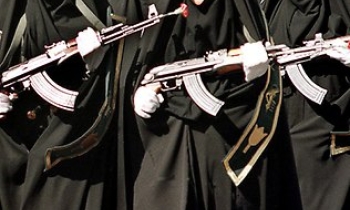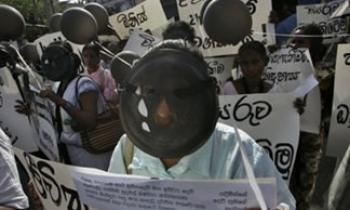Gunmen killed the director of Iraq's public television channel and his driver Saturday, the second killing this month of a figure who shapes broadcast news coverage of the country's sectarian strife, agencies reported quoting police sources.

Amjad Hameed, 45, a former cameraman and programming executive who had run Al-Iraqiya television since July, was shot several times in the face and chest after the assailants cut off his car as he headed to work in central Baghdad, the capital. He died on the spot. His driver, Anwar Turki, died later in the hospital.
Al-Iraqiya, indirectly controlled by the Shiite Muslim-led government, suspended regular programming and aired verses from the Quran after reporting the news of his death. It showed footage of female colleagues as they wept over Hameed's coffin and of surgeons as they struggled to revive his driver, who died after emergency surgery, the Los Angeles Times reported.
An Iraqi militant group affiliated with Al-Qaeda has claimed responsibility for the killing of Hameed, according to Radio Free Europe / Radio Liberty (RFE/RL). The military wing of the Mujahedin Council, in a message posted on the Internet, said it killed Hameed. The group said Hameed's killing was justified because he worked for a TV station the group called a "mouthpiece of the apostate government."
In addition to the 84 journalists killed since the start of the war, a total of 38 journalists have been kidnapped. Five of them – four Iraqis and one Italian (Enzo Baldoni) – were killed by their abductors. The others were released safe and sound. US journalist Jill Carroll has been held hostage since 7 January. Two Iraqi reporters, Reem Zeid and Marwan Khazaal, have been held hostage since 1 February.
The pan-Arab satellite TV station Al-Arabiya is the foreign news organisation that has suffered the most losses in Iraq. Six of its journalists have been killed. The local TV station Al-Iraqiya is the hardest-hit Iraqi media, with 11 journalists killed so far.

The killings came four days after the shooting death of Munsuf Abdallah Khalidi, a news anchor on Baghdad Television, which is run by the country's largest Sunni Arab party. That channel and Al-Iraqiya give highly partisan, opposing slants to the bloodshed that pits Sunnis against Shiites. Khalidi was the third journalist that Baghdad TV has lost. The previous ones were reporter Maha Ibrahim in July 2005 and cameraman Mahmoud Zaal in January 2006.
Last month, a famous war correspondent for the Dubai-based Al-Arabiya channel, Atwar Bahjat, was shot to death along with her cameraman and engineer while covering the bombing of a Shiite shrine in Samarra. The blast triggered a weeklong spike in nationwide violence that left hundreds dead.
The Iraqi Journalists Syndicate, reacting to Saturday's killings, announced that it would ask the interior minister to grant licenses allowing journalists to carry firearms in self-defence. More than 70 foreign and Iraqi journalists have been listed as killed since US forces toppled President Saddam Hussein three years ago. Al-Iraqiya says 38 of its employees, including nonjournalists, have died in the violence.
Most attacks on the public channel's employees are believed to be the work of Sunni-led insurgents. "Terrorists want to muffle the media to stop the truth from reaching the people," said Mufeed Jazaree, Iraq's former culture minister. Waffa Abass, a spokesman for Al-Iraqiya, said Hameed considered leaving the channel last fall after receiving death threats. He moved to a different neighbourhood but kept his job, Abass said.
Print journalists also have received death threats. "They come by email or anonymous calls, or even text messages on their mobile phones," said Basim Alsheik, a newspaper editor who heads the National Council of Iraqi Journalism and received such a threat a week ago. "Our lives are in the wind."









